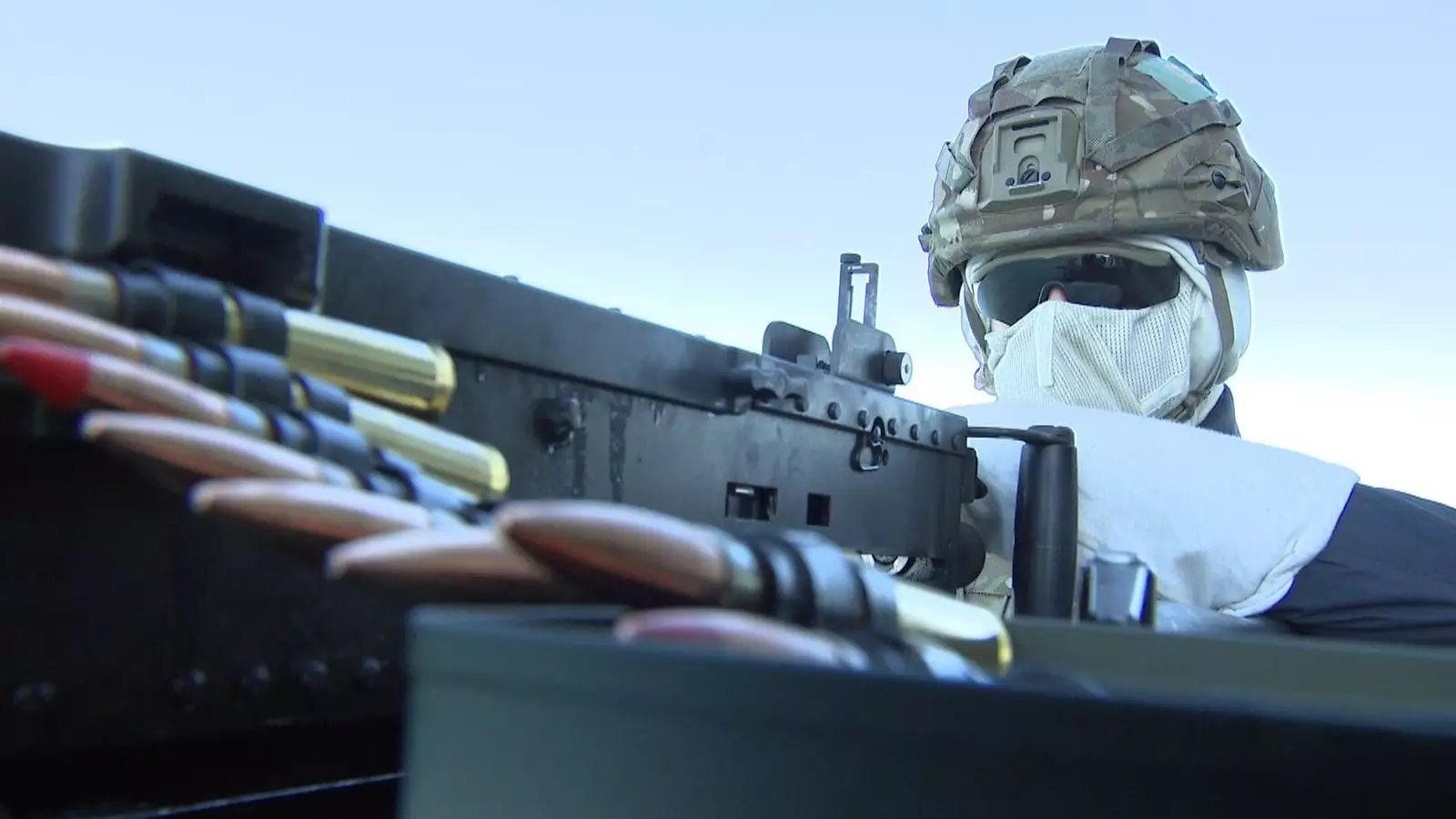In a world teetering on the brink of conflict, the Royal Navy’s recent drills off the Welsh coast resonate with a sense of both urgency and despair. The HMS Dauntless, a Type 45 destroyer, stands as a formidable symbol of military might, yet it also underscores a distressing reality: British naval forces find themselves stretched thin amid escalating global tensions. With its crew jumping into action to counter the simulated threats of enemy drones and unmanned vessels, the exercise starkly illustrates how the specter of war looms larger than ever, making it increasingly clear that the very foundations of national security are in jeopardy.
As the armed forces minister, Luke Pollard, reassured the public of their operational readiness, one couldn’t help but feel a sense of unease. Yes, the destroyer boasts impressive capabilities, but can common platitudes about defense truly assuage concerns over the conflicts brewing in the Indo-Pacific and the Middle East? The heightened activities against threats from Iranian-backed forces in Yemen signal an ominous warning that British interests could easily be jeopardized in a rapidly deteriorating geopolitical landscape.
The Illusion of Robust Defense: Are We Truly Prepared?
The mantra of “maximum air threat” and the activation of onboard defense systems is stirring in its depiction of preparedness. However, one must critically examine the broader implications of portraying strength when the resources lie perilously low. Simulated threats may provide a sense of control, yet the reality is that the Royal Navy is at a crossroads, where the promise of increased funding rings hollow against the backdrop of decades of severe budget cuts. The planned defense spending increase to 2.5% of GDP by 2027, while perhaps a positive step, does little to mitigate the urgency of the current crisis.
It’s important to highlight that while these exercises are crucial for maintaining operational readiness, the very use of drones—an innovation that has been exploited effectively by other nations—highlights gaps in Britain’s traditional naval warfare strategy. If Ukraine can wield drone technology against an established power like Russia, one has to wonder about the effectiveness of the UK’s naval capabilities when faced with such evolving threats. The Royal Navy’s emphasis on testing against ‘pretend swarms’ feels like a futile exercise in comparison to the real-world applications that adversarial nations are already employing.
Power and Peril: The Cost of Ambiguity
As Pollard phrases it, “there’s always options in support of our national security objectives.” While this assertion hints at tactical flexibility, it belies a paradox of preparedness that might not withstand the harsh light of reality. The question arises: Are we deluding ourselves into thinking that naval power alone will assure our safety when much rests on the ambitions of unpredictable leaders like Donald Trump? Should the UK decide to link its military strategy too closely to the whims of an increasingly erratic American foreign policy, it risks compromising its own sovereignty and strategic integrity.
Moreover, the prospect of cooperation with the United States, especially in a potential conflict involving Iran, casts a longer shadow on Britain’s military autonomy. Can the UK truly serve as an independent player when military decisions may ultimately be dictated by Washington? The reality of international relations calls for strategic partnerships, but the balance must not tip toward subservience; otherwise, the armed forces’ purported capabilities become little more than a veneer, a façade disguising a vulnerability that could be exploited by adversaries.
The Future of Naval Power: Navigating a Stormy Sea
The image of warfare continues to evolve, as does the very nature of naval engagements. The demonstration of naval prowess on the seas brings about a sharp reminder: the evolution of threats demands an equally adaptive approach to defense policy. The UK must transcend mere reactive measures to adopt preventive strategies that account for the multifaceted realities of modern warfare, particularly in the sphere of unmanned systems and cyber threats.
If this recent exercise serves any purpose beyond public reassurance, it should compel rationale deliberation by policymakers on the urgent need for substantial, rapid reinvestment in defense capabilities. Recognizing the intrinsic fragility of at-sea operations is paramount if Britain intends to uphold its standing as a formidable maritime power. The stakes are high, and the urgency is palpable; the question remains whether those in charge will respond before it becomes too late.


Leave a Reply